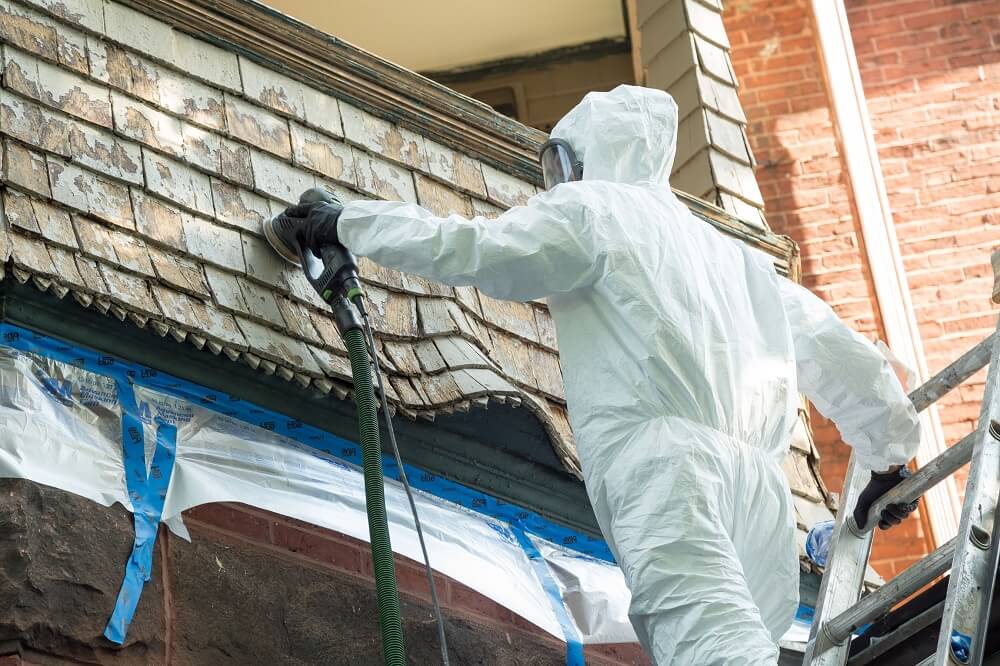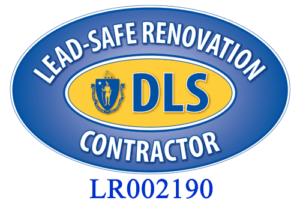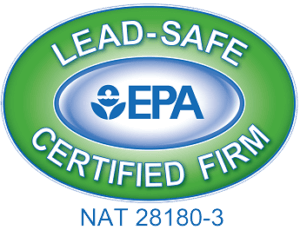
In the following article our employee Mike points out the challenges to working safely when on a jobsite – threats are myriad and everywhere. We are reasonably astute about safety training but there is always room for improvement and feedback like Mike’s is both helpful and critical to ensuring our job sites, be they interior or exterior, are safe places to work.
– Nigel
– – – – – – – – –
I was in the infantry in the Army. We would conduct live fire exercises on courses that we would attack. Many times I would carry a brick of c4 explosive in my cargo pocket with a detonation cord in another pocket. Before we would act, I would tell everyone in my platoon where the c4 was on my person. This way, if I went down, they could take it off me and see the mission to accomplishment.
When I was in Iraq, I use to carry an extra belt in my cargo pocket. I carried it with me in case I had a limb blown off. This way I could put a tourniquet around myself and I wouldn’t have to wait for help. This idea was a conscious thought every morning much like making sure you have your keys and wallet. It became second nature. I don’t have to carry that belt anymore, but what it taught me was to simply be prepared for what the day may bring.
I would say that most of the time you will and you should help yourself through preparation before you start work. I would also say, for the most part, most of us do. Nobody should have to force you to drink water before a lead paint removal job when you know your going to have a mask on for an hour or longer. Nobody should have to tell you should need to drink water often when in the sun on an exterior in August.
But then again, how many gallons of water do you see on a job site? Probably not as many as the coffee mugs you see. Is that a red flag? Could be. Should it be noticed? Absolutely.
I’ve been guilty of tunnel vision on a job. This is when the mind focuses almost too much on the task at hand, the budget, the weather, the parking situation, feeding the meter, the quality of the sanding before paint is applied. All of these things are more than important. They’re the life blood of the company and quality trumps all.
All but safety. Safety is its own animal. Safety doesn’t care about you. It wants to, but you have to make sure you care about it first, otherwise its evil brother shows up. This evil brother comes in all kinds of different shapes and sizes. Usually he stays small and is more aggravating than deadly. I find that tripping on things is his claim to fame. A little more than stubbing your toe, a little less than falling down. But trust me; this pest wants you to fall down. He wants to ruin your day and your life if he can. And if he can, he will. He has a monster on his side. It’s called gravity. Gravity makes you tired. Gravity wears you out. Now your body is tired. Now your mind will follow. What follows next isn’t usually good.
A few personal stories come to mind when I look back at days or events within a day that should have gone better as a painter. Here’s a few of them…
I was working on a big residential house and had put up a 30 foot plus ladder. It was leaned at a good angle, it was set in the lawn, it was even and I tested it before I went up. It felt good. I left it up against the house so later in the day I wouldn’t have to ask someone to step away from their own work and help me. I went around back and started to work. About 30 mins later I heard a giant crash. If there’s one sound every painter in the world knows, it’s the sound of a ladder hitting the ground. I ran out front to find the ladder flat on the lawn and a giant dent in the side of the house.
I stood there imagining how much worse this could have ended. The ladder almost went through the window. The ladder could have killed someone. I figured out pretty quickly how this happened…the wind. I didn’t put stabilizers on the ladder. Not that I forgot but that I didn’t think I needed them. I didn’t think I needed them because the calculation in my mind was that it was a waste of time. The waste of time thought came from previous “being rushed” pressure. Too much unmanaged “being rushed” pressure leads to cutting corners. Cutting corners leads to not stabilizing a ladder.
I remember feeling lucky, upset, embarrassed, and stupid for having that ladder fall down. But the real feeling that I got from the whole situation was “safety isn’t on my time, I’m on safety’s time.” there’s no winging it. If you’re hoping for the best, you’re already doing something wrong.
–
Just the other day I was on an exterior job and saw a hornets nest in a soffit that I needed to paint. I toyed with the idea of putting on a heavy duty glove and trying to just crush them. Again, I stopped and thought, “I’m hoping for the best”. So I stopped. Does the idea of battling a half-dozen hornets to victory sound like a good idea? Kind of. Painting an exterior in the sun by yourself for most of the day isn’t exactly the most exciting way to spend the day so the temptation to spice the day up does come into play. Here’s other proof of needing “something exciting” to get you through the day…
My coworker, Tim, buys his lunch every day. I use to think this was a huge waste of money considering you can just about buy and make a sandwich for a week on what a large sub costs for one day. His response was, “I need something to look forward to.” I thought that was not only a great answer, but true. The psychological aspect of accomplishment comes into play differently for everyone. Sometimes “accomplishment” is not even based on personality, but on job title. When I was a Foreman, the last thing I was thinking about was adventure. I was thinking about the budget. But what I noticed is that my painters on my crew barely thought about the budget and had the potential to think more of other things to liven the day up.
My point is, is when you find yourself or someone else doing something that seems a little unsafe, it is. Walking by someone’s ladder and kicking it as a joke softly, doesn’t change the fact that you kicked it. You don’t know how the guy up there is going to react to that. I’ve seen that based on sheer boredom.
–
Here’s another one… I pulled my hand down from the same hornet occupied gutter quickly and cut my finger on a down spout. Ready? …
I asked the Foreman where the first aid kit was. He said it was underneath so and so in the back of the van, which was parked around the corner from the house. I searched for it for a minute or so then he came over and looked for it. He eventually found it and I got a band-aid and went back to work.
–
How many things in those 4 sentences you can find wrong, I thought to myself.
If I am looking for a first aid kit, then how many other people on other crews are looking for it? How many first aid kits are buried under supplies? Besides the fire extinguisher, being the single most important piece of equipment you’ll ever have in my opinion, the first aid kit is essential on sight.
Vans and trucks get locked. Vans and trucks get parked down the road. I understand that there is no real life saving equipment in a first aid kit. If someone falls off a ladder and breaks a leg, there’s nothing in there that’s going to help them. Regardless, most days to day injuries isn’t life threatening?
Let me ask you this – As the master Foreman you are known for doing outstanding work within the budget…
Who in your crew is allergic to bee stings? Being allergic to bee stings means you swell up, your throat closes and you can stop breathing.
If you haven’t seen someone for a while, are they working or are they lying on the front lawn dying?
Who are you going to call if you need emergency assistance? I’ve called the police before. I’ve had them not pick the phone up. That’s no joke.
Do you even know where you are? I’ve worked in towns I’ve been unfamiliar with before. I’ve confused “Winthrop” with “Wrentham”. why? Because my GPS did the thinking for me at 5:45 am. When I press “w” and it gives me the 3 towns and I pick one. I’ve had to think about it for a total of 4 seconds. Then I drive. Then I’m there. It’s the last time I think about it. The name and address are on the folder. Chances are the folders in the van. Chances are the van is locked. How about the street you’re even on. Do you have to run down the street to look at the street sign to find out where you are? Maybe. Remember, someone needs an ambulance right now. You’re in charge. The homeowners out. You don’t have cell phone reception. You don’t know if the house has a land line. Do you…?
The guy that drank thinner by accident is about to die on the neighbors porch because nobody knows where they physically are, who to call, or how.
If you’re thinking that you are foreman and you don’t have to worry about all of this, think again.
What if it’s you that’s in trouble? How is anyone on your crew going to help you if they don’t know where anything is? The keys to the van? I don’t always put my keys in the same place for my car. Sometimes I put them in my bag to keep them out of my pocket. Sometimes they’re in my pocket. Sometimes I don’t know where they are. Before I handed the van off to a new foreman I told him that there was a spare key in a box magnetized to the frame of the van under the side door. Want to save time and money the next time your keys get locked in there, and believe me, they will. Spend a total of 7 dollars on doing the same. Then tell whoever you’re with where they are.
Here’s another situation that might come up. When I was training for my Dive Master Certification in the Marines, the instructor told us something that I would never have thought of that makes perfect sense. If you ever have to call an ambulance but need to stay with the victim for what ever reason and you need to tell someone to call, What you say to them is, “Call an ambulance, and come back here and tell me you contacted them.” this will ensure you that help is on the way. It will also ensure the victim, if conscious, that his mind can relax even if just a little until help arrives. This way stress has a foreseen ending for everyone. It also ensures that help is actually coming. It’s the difference between running a marathon with no limit and running one with a set distance.
As painting and restoration experts we deal with some of the most dangerous aspects ever created on a job site …
– electrical wires,
– bees nests, heights,
– wet roofs,
– slanted roofs,
– ladders,
– the sun,
– thorn bushes,
– broken glass,
– fumes,
– gas cans for power washers,
– chemicals,
– lead,
– rusty nails,
– loose stones on stairs,
– hills,
– wet grass on hills,
– wet grass on hills while your moving a 30 ft ladder in the sun on a Friday after you’ve been in the sun all week around a thorn bush in a chem suit with a mask on.
I’m a solution man. I inherently think about problems, not because I’m dark or negative, I think about them to solve them. Nobody’s life is worth not thinking about it. A printed address on an index card takes to the front door so every crew member can see it doesn’t solve all of it, but at a minimum, if something really bad happens, you and everyone else will know where you are. Knowing if there is a land line and where it is, if indoors, solves a lot of problems. You don’t have to over think it. But don’t ever under think it. That guy your working with’s dog is waiting for him to get home so they can go to the park. Don’t make that dog sad. Think about it.
Mike Glowacki
Catchlight Painting



